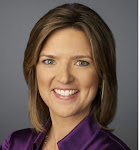Thanks to all who entered the Cheating Death book giveaway. We have notified the five winners.
US News & World Report recently published an interview with Dr. Gupta on his book, Cheating Death. Here's the intro and a few of the questions and answers. To read more just follow the link.
Sanjay Gupta operates on Mondays and sees patients on Wednesdays. The rest of the week, he leads CNN's medical coverage. Gupta has to be the first (one hopes the last) news reporter to perform brain surgery while on the job in a war zone. He enjoys his weekly responsibilities so much that he turned down President Obama's offer of the surgeon general's position. Cheating Death: The Doctors and Medical Miracles That Are Saving Lives Against All Odds, Gupta's second book, takes a fresh, hard look at assumptions that doctors have accepted for decades: CPR works. You're dead when your heart stops. If your brain looks like mush and the top doctors at a top medical center say you're brain-dead, there's no possibility of coming back. I asked Gupta how the compelling stories he presents should change our ideas about modern medicine and what they might mean for healthcare reform.
Cheating Death and its accompanying CNN specials air some of medicine's basic deficiencies (like how we define death). What's your aim?
I've been thinking about this book since I was a medical student. The way that we pronounce people "dead" and the whole process of death is something that we know more about now than we have ever before. It's not a perfect system. I take some of these concepts that are usually more squarely in the realm of science and the journals and try to make them more approachable for a lay audience. I'm not trying to be controversial or to raise debates.
You write about Lance Becker, director of the University of Pennsylvania's Center for Resuscitation Science, who says death occurs when doctors quit. That's pretty harsh. Do you agree with him?
If you're in the middle of a code and there's no response to the resuscitation attempts, at some point someone says, "OK, that's enough." I'm not saying that if we'd only tried another 10 seconds everything would be different. But the world that we live in, based on the assumption of what is alive and what is dead, does have a subjective nature to it. That, in and of itself, is surprising to people, and "death is when doctors quit" is one example.
Monday, December 14, 2009
More on Cheating Death
Posted by
Phebe
at
3:54 PM
![]()
Labels: Cheating Death, Dr. Sanjay Gupta
Subscribe to:
Post Comments (Atom)


















































1 comment:
Let's set the record straight. Sanjay Gupta turned down the opportunity to become Surgeon General because it PAID LESS, than whatever he makes now. He said his first responsibility was to his family and that included "financial responsibilty."
It wasn't, as the article seems to imply, because he really enjoys being a neurosurgeon more than becoming the Surgeon General of the United States. He is not that altruistic. He was being truthful as well as practical.
Post a Comment